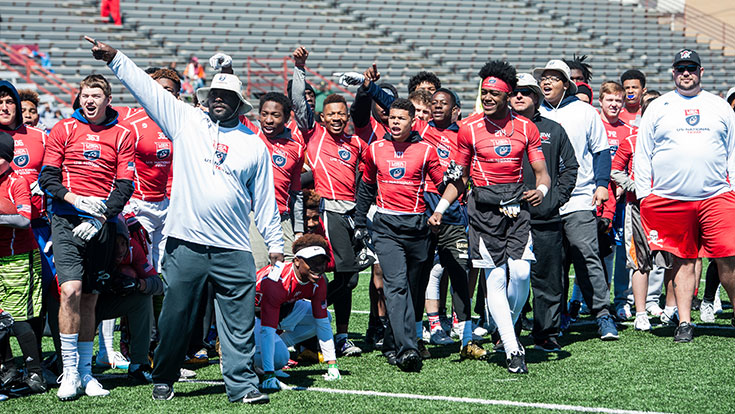Think before you send: the impact of social media on high school student-athletes

In the digital age, people have access to more information than ever before.
When it comes to college recruiting, schools use this information to identify promising student-athletes and uncover potential red flags. Many high school athletes are active on social media, and it is important to remember that any online presence offers a reflection into an individual’s character.
Names, faces and reputations are attached to social media accounts, and one misstep can live forever online, creating permanent negative repercussions. Think of online accounts as a personal brand. The words, videos, actions and people you surround yourself with online are all elements of that brand.
College recruiters draw conclusions about athletes based on what they see on social media. Posting online is simple and sometimes feels like a conversation between friends. But with the internet, anyone and everyone can be listening.
This can be both positive and negative. Putting a best self out in the public eye goes a long way toward how potential coaches think about someone.
Don’t give colleges a reason not to recruit you.
Aaron Ingram, Senior Manager for U.S. National Teams Football Operations. He said that most recruiters start with a quick Google search of potential prospects, and while Facebook, Instagram and Twitter are the most prominent platforms at the moment, recruiters will look at anything they can find.
Ingram offered a list of the major dos and don’ts for high school student-athletes trying to attract the attention of college recruiters.
3 social media dos
- Take a breath before hitting “send” or “post.” Ask yourself: Is this really something I should post? What will others think when they see this? What would my grandmother think if she saw this?
- Make social media a “trailer” of your life, not a whole movie. People should see a brief peek into what it is like to be you but don’t need a picture of every meal you eat. Moderation is key, and recruiters tend to shy away from overactivity. If you are Tweeting 20 or 30 times a day, what else are you doing with your life?
- Remember that you are always representing someone, whether it’s yourself, your family, your school or your team. So act accordingly.
3 social media don’ts
- Don’t post anything you wouldn’t want your mother to see. It’s a simple but effective rule. It’s plain common sense.
- Don’t post pictures with alcohol, drugs or anything similar. Those acts are illegal. Sharing them is plain stupid. Also, don’t post anything that demeans women.
- Don’t retweet or share inappropriate material. Retweeting is just as bad as you saying it. Don’t retweet offensive music lyrics, movie lines or anything that would be seen as inappropriate.
Share things on social media that represent you in a positive manner. If there is any question to it, delete it. As an athlete and a leader on and off the field, make sure social media accounts say the same thing.
To find out more information on how the U.S. National Team can give you positive recruiting exposure, click here. You can also follow the U.S. National teams on Facebook, Twitter and Instagram.
